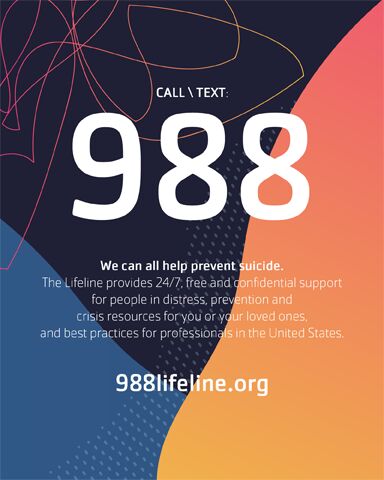When There is a Crisis
Your teenage years are full of change inside and out, so it makes sense that life feels more complex. New thoughts and ideas about your identity, friends, and family can be positive but can also be confusing and overwhelming.
During this heavy developmental phase, you or some of your peers may have more trouble adjusting than others because puberty isn’t the only development during your early teenage years. About half of all people who encounter mental health conditions start experiencing symptoms around age 14.
The whirlwind of changes in your early teenage years makes it challenging to tell the difference between “typical” behavior and behavior that signals a mental health crisis.
What to Do If Someone You Know Is in Crisis
What is a mental health crisis, and what do I do if I know someone having one? A mental health crisis happens when someone is a risk to themselves or others or can’t control their extreme emotions or behavior. The first thing you should do when someone is in crisis is take note of their behavior.
Some warning signs of a mental health crisis include:
- Expressing suicidal thoughts
- Threatening to harm yourself or others
- Self-harming (cutting, burning, etc.)
- Severe aggression
- Hallucinations or delusions
- Isolation
Not all mental health crises are outwardly noticeable, however. For example, symptoms of depression and warning signs of suicide are very similar. These symptoms can range from unnecessary risk-taking to completely losing interest in everything.
In a phase of life where your decision-making skills are impaired by constantly changing factors, know that suicide is never the answer. If you hear someone talking about suicide (even jokingly), always take it seriously.
Help for Parents When There Is a Crisis
As a parent, it’s never easy to see your child go through an event as stressful as a mental health crisis, but you must know how to proceed if it happens. As soon as you suspect your child is in trouble, it would be best to determine whether your child or anyone around them is in immediate danger.
If your child or someone around them is in immediate danger, you should either (1) call 911 or a local crisis line or (2) go to the closest emergency room. Always stay with your child to closely monitor any changes in the situation.
When you call 911, tell the operator that your child is experiencing a mental health crisis, and ask if they have a child-specific crisis response team. If they don’t, a regular crisis response team is fine, but a specialized team is ideal if accessible.
If your child is not in immediate danger, talk to them about their feelings. Your priority here is to ensure your child feels safe and heard. If you want to ask questions to understand the situation better, that’s okay. Prioritize listening, however.
Your child may already have a documented history of mental health issues. If so, contact your child’s physician, tell them what happened, and ask how to proceed. If this is your child’s first significant experience with mental health issues, schedule an appointment for a mental health assessment. Once you speak with a physician, work with them to create a crisis plan to prepare for future possibilities.
Resources for a Mental Health Crisis
If you or someone you know is experiencing a mental health crisis, call or text one of the hotlines below for immediate help from a crisis support worker.
- National Suicide Prevention Lifeline: 1-800-273-TALK (8255)
- https://www.crisistextline.org/ Text HOME to 741741
- Suicide and Crisis Lifeline: 988
- Substance Abuse and Mental Health Services Administration: 1-800-662-4357
- National Mental Health Hotline: 1-866-903-3787
- National Domestic Violence Hotline: 1-800-799-7233


